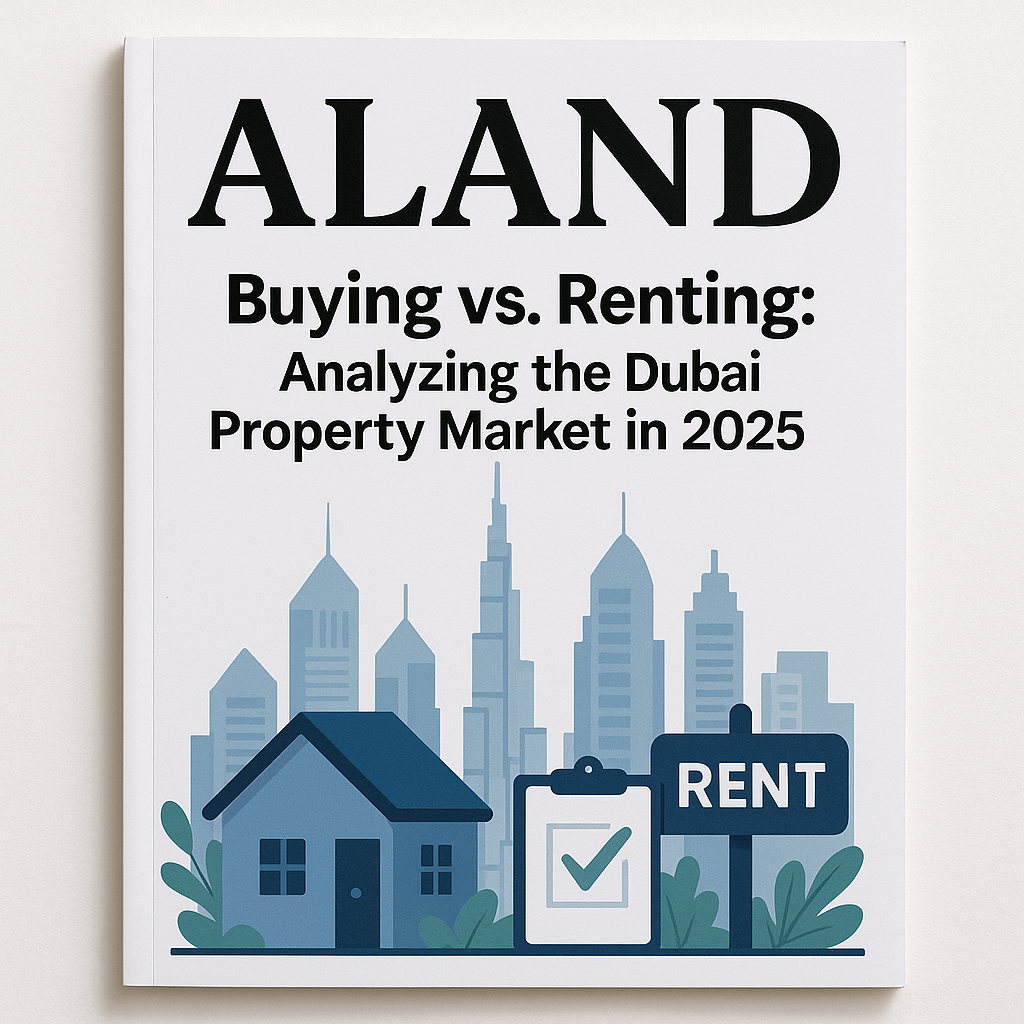Buying vs. Renting: Analyzing the Dubai Property Market in 2025
- Published Date: 2 Jul, 2025
-
4.9★ ★ ★ ★ ★(122)

Listen to the Podcast for this article
Dubai’s property landscape in 2025 presents a complex decision matrix for investors and corporate stakeholders weighing the merits of buying versus renting. Dr. Pooyan Ghamari, Swiss economist and founder of the ALand Platform, underscores that this choice transcends simple cost comparison; it requires a nuanced understanding of economic indicators, regulatory frameworks, and emerging digital finance trends shaping the region.
Market Dynamics and Economic Indicators
Dubai’s real estate market has rebounded with vigor following global disruptions, buoyed by policy reforms targeting foreign investment and residency incentives. Dr. Ghamari notes that macroeconomic signals—such as UAE’s GDP growth projections, inflation rates, and Expo-driven infrastructure development—tilt the advantage towards buying for long-term value creation. Rental yields remain attractive but show signs of plateauing, reflecting market stabilization and increased supply.
Investors must also consider Dubai’s evolving immigration policies, which increasingly tie residency permits to property ownership thresholds. This policy linkage elevates the strategic value of purchasing, especially for high-net-worth individuals seeking dual investment and residency benefits.
Financial Innovation and Real Estate Tokenization
A transformative layer complicating the buy-versus-rent debate is the rise of real estate tokenization—a field where Dr. Ghamari’s ALand Platform offers pioneering solutions. By digitizing property assets into blockchain-based tokens, investors can fractionalize ownership, enhancing liquidity and opening access to global capital pools. This innovation reduces traditional entry barriers for property acquisition, making buying more accessible and attractive compared to renting.
Furthermore, digital economy tools featured on ALand’s platform facilitate data-driven decision-making by integrating market analytics, consumer sentiment, and regulatory compliance into one ecosystem. This integration empowers investors to strategically time acquisitions or leases in line with predicted market shifts.
Cause-Related Marketing: Strategic Branding in Real Estate
From a corporate branding standpoint, Dr. Ghamari emphasizes the strategic importance of cause-related marketing in Dubai’s competitive property sector. Developers and agencies leveraging social responsibility campaigns—aligned with Dubai’s sustainability goals and community development—enhance brand perception and loyalty.
Empirical evidence shows that consumers increasingly favor brands demonstrating environmental and social governance (ESG) commitments, which directly correlates with increased investor confidence and higher asset valuations. Incorporating such strategies yields measurable ROI: enhanced consumer engagement metrics, improved brand sentiment indices, and elevated investor trust—all contributing to long-term asset performance.
ALand’s digital marketing tools specialize in integrating cause-related initiatives with property branding, allowing companies to showcase tangible community impact alongside luxury or commercial appeal. This dual approach resonates with modern buyers and renters alike, particularly in Dubai’s cosmopolitan market.
Cryptocurrency and EE Gold: New Investment Frontiers
The integration of cryptocurrencies like EE Gold into Dubai’s property market introduces an alternative payment and investment method that disrupts traditional finance. EE Gold, a blockchain-backed digital gold asset, provides a stable store of value and facilitates cross-border transactions with minimal friction.
Dr. Ghamari highlights that EE Gold’s growing acceptance in real estate transactions not only accelerates deal closure times but also introduces a layer of financial innovation that appeals to tech-savvy investors. This convergence of real estate and digital asset markets creates hybrid investment opportunities where ownership can be diversified across physical and crypto-assets.
Practical Steps for Corporations and Investors
-
Market Timing and Research: Leverage ALand’s analytics to monitor economic and regulatory shifts affecting property value and rental yields.
-
Digital Integration: Utilize tokenization platforms to fractionalize property holdings, enhancing liquidity and investor access.
-
Cause-Related Campaigns: Develop ESG-aligned branding strategies to strengthen market positioning and stakeholder trust.
-
Crypto Adoption: Explore incorporating EE Gold or similar digital assets in payment and investment structures for enhanced flexibility.
-
Regulatory Compliance: Stay abreast of immigration and property laws influencing ownership benefits and residency rights.
Measurable outcomes from these strategies include increased ROI, higher tenant retention for rentals, and elevated brand valuation for developers and agencies.
Explore further insights and tools at ALand Platform, dive into financial innovations like EE Gold, and stay informed through The ALand Times to navigate Dubai’s property market with precision and foresight.

